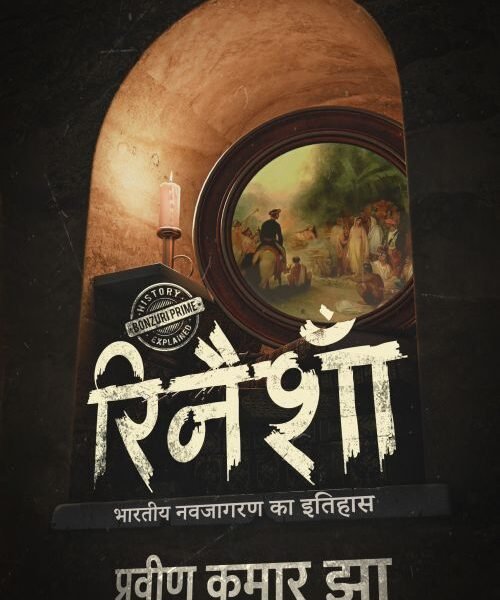The Crisis of Succession : Palace Intrigues
Original price was: ₹749.00.₹649.00Current price is: ₹649.00.
Mithila as a region is far greater in expanse than the mere physical boundaries of the Raj Darbhanga. But Darbhanga was always considered as the representative of the ancient Mithila. The last dynasty to rule from
Darbhanga was known as the ‘Khandavala’ and it had produced eighteen illustrious personalities who adorned the throne of Mithila Raj. Sir Kameshwar Singh was the last Maharajadhiraja and after his sudden and mysterious death on 1st October, 1962, the dynasty came to an abrupt end, though the era of monarchy had ceased to exist for all practical purposes on 15 August, 1947, when India, after getting independent from the colonial rule of Britain, decided to adopt democracy for governance.
The socio-economic-political and cultural life of the people of Mithila had always been inextricably intertwined with the power ruling Mithila. These illustrious rulers were instrumental in establishing and continuation of supremacy of knowledge over economy or polity. Mithila, being primarily a peasant society, flirted in a big way with industrialization between 1840 and till the end of 1960s, only to end up being one of the poorest and most under-developed regions of India.
This book tries to look into the factors and conditions which led to, not only the end of the dynasty, but also the fall of this great cultural zone which had risen like a meteor on the national stage, and dominated the
political/cultural/economic movement from 1879 to 1960s. It tries to explore the inter-personal aspirations and intrigues due to ambition without ability of the members of the first family, through the – diaries/ documents/ letters, etc. It tries to bring to the fore, the events and change in mind-set of the people as the “Yuga of monarchy’ comes to an end and “Yuga of democracy’ takes over. The book raises questions and cajoles the readers to have a rational view on the era and the dominating events.
83 in stock
Description
Mithila as a region is far greater in expanse than the mere physical boundaries of the Raj Darbhanga. But Darbhanga was always considered as the representative of the ancient Mithila. The last dynasty to rule from
Darbhanga was known as the ‘Khandavala’ and it had produced eighteen illustrious personalities who adorned the throne of Mithila Raj. Sir Kameshwar Singh was the last Maharajadhiraja and after his sudden and mysterious death on 1st October, 1962, the dynasty came to an abrupt end, though the era of monarchy had ceased to exist for all practical purposes on 15 August, 1947, when India, after getting independent from the colonial rule of Britain, decided to adopt democracy for governance.
The socio-economic-political and cultural life of the people of Mithila had always been inextricably intertwined with the power ruling Mithila. These illustrious rulers were instrumental in establishing and continuation of supremacy of knowledge over economy or polity. Mithila, being primarily a peasant society, flirted in a big way with industrialization between 1840 and till the end of 1960s, only to end up being one of the poorest and most under-developed regions of India.
This book tries to look into the factors and conditions which led to, not only the end of the dynasty, but also the fall of this great cultural zone which had risen like a meteor on the national stage, and dominated the
political/cultural/economic movement from 1879 to 1960s. It tries to explore the inter-personal aspirations and intrigues due to ambition without ability of the members of the first family, through the – diaries/ documents/ letters, etc. It tries to bring to the fore, the events and change in mind-set of the people as the “Yuga of monarchy’ comes to an end and “Yuga of democracy’ takes over. The book raises questions and cajoles the readers to have a rational view on the era and the dominating events.
It is not necessary to be a historian to write history. Tejakar Jha, an M.A. in Sociology from Patna University, has been living by this dictum for quite some time now.
Essentially a marketing research professional, Tejakar started ‘Vigyapan’, his own design studio, in 2001 after a stint with a leading advertising agency of Bihar. But the state’s rich history and many an untold stories kept pushing him towards substantial research. He has been working for the last two and a half decades on the history of Bihar, especially Mithila, during the colonial period. . Cited by scholars in India and abroad, his works include :
1. Bihar in the Eyes of British Traveler and Painters, 1780-1850, published by Mabharajadhiraja Kameshwar Singh Kalyani Foundation, Darbhanga, 2008.
2. Walking Down the Lane, A Pictorial Tribute to Dr. Rajendra Prasad, the First President of India, published by Bihar State Archives, Patna, 2011.
3. Inception of the Banaras Hindu University : Who was the Founder in the light of historical documents? 2015, Partridge Publications Limited, Bloomingtom, USA. ISBN. 978-1-4828-5249-3
4. Banaras Hindu Vishwavidyalaya ki Sthapna ke Itihaas. Sansthapak Kaun — _Aitihashik Dastavejiye Pariprekshya Mein. 2018, Vigyapan Publishers, Patna, Bihar. ISBN. 978-93-5321-386-2.
5. Maya : The Immortal Romance. 2020, Vigyapan Publishers, Patna, Bihar, ISBN. 978-93-5426-306-4
Besides, he has several articles on colonial period published in distinguished research journals.










Reviews
There are no reviews yet.